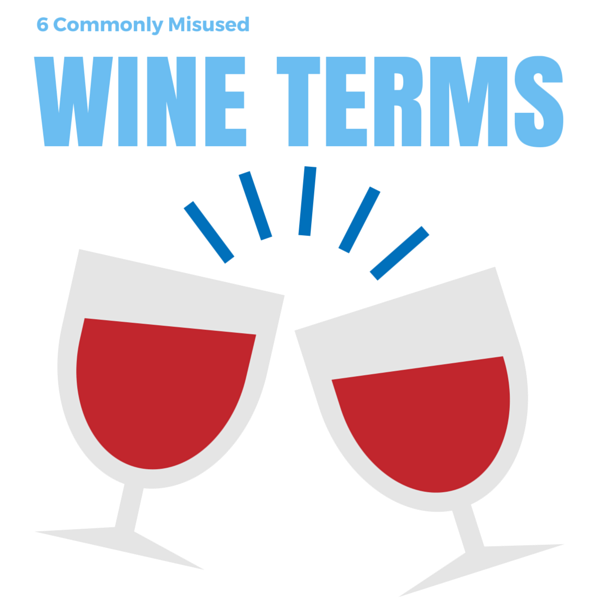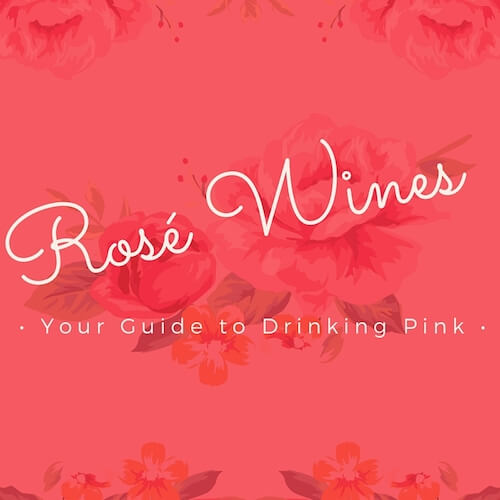6 Commonly Misused Wine Terms – Are you making these mistakes?

Wine words can be confusing for even people working in the wine industry let alone the likes of us folks who simply spend every other night on the couch with the lucky bottle of the night.
I thought it would be good to look at 6 terms relating to wine which are commonly misused so you can improve your wine education and start looking and sounding like a grade A wine professional. Not to mention helping you understand all those wine pros out there who like to speak and write using only technical wine terms.
I make wino mistakes all the time, with the thousands of technical wine words, grape varieties and wine regions out there it’s easy to do! But hopefully this post will help us all.
Champagne is not made in Australia
…or anywhere but the Champagne region in France!
I have to admit, this is probably one of my biggest wine gripes. When someone calls Passion Pop or Yellowglen Yellow ‘champagne’ it really gets on my nerves.
Champagne is a sparkling wine which comes from the region of Champagne in France. By law only producers in the region can use the name and they have to uphold many rules and regulations in order for their bubbles to be classified as ‘champagne’. It’s a special name and shouldn’t be used when downing a bottle of Brown Brothers sparkling wine.
You may think it’s the wine snob in me coming out, however just imagine you are called a Kiwi when you’re an Aussie or vice versa. We are all proud of where we come from and Champagne should have that right too.
If you want to be conscious of using the term, simply call all bubbly wines ‘sparkling wine’ to rule out any misuses until you’re 100% over the term, as technically champagne is still sparkling wine.
Palate, Palette or Pallet
Okay this is more a grammar one than anything but when you’re writing a tasting note or writing about how a wine is in your mouth use the word ‘palate’ please.
Your ‘palate’ is the roof of your mouth, more commonly know as your sense of taste. A ‘palette’ is the flat board an artist mixes paint on or it can describe a range of colours. And a ‘pallet’ is all the rage for upcycled furniture these days, also known as a flat platform onto which goods are loaded (like cases of delicious wine!).
Wine Aroma or Wine Bouquet
This one is a touch on the pedantic side and probably a mistake I make without even realising it, but I thought I had better mention it.
As Robert Parker puts it:
“Aroma is the smell of a young wine before it has had sufficient time to develop nuances of smell that are then called its bouquet. The word aroma is commonly used to mean the smell of a relatively young, unevolved wine”.
And a wine bouquet is:
“As a wine’s aroma becomes more developed from bottle aging, the aroma is transformed into a bouquet that is hopefully more than just the smell of the grape”.
Therefore use the word ‘aroma’ for young wines and ‘bouquet’ for their older counterparts. More RP wine definitions can be found here.
Wine Varietal or Variety
This is another one that gets me, darn you bad grammar gene! I tend to avoid using the word ‘varietal’ so I can steer clear of any misuses as I know how worked up people can get over using it wrongly. But it’s about time that I lay it all out on the table and get it right (anyone get the feeling this post is more for my educational purposes? Haha!).
How I try to remember the fine line of wrong and right is that ‘varietal’ is a describing word, an adjective. Where as ‘variety’ is a noun.
There are some people who get majorly hyped up over the use of the word ‘varietal’ like 1 Wine Dude who does a darn good job at explaining it in his post titled ‘You Can Keep Your Varietal and Shove It Up Your Variety‘ if you ask me:
“Maybe I’ll go for a varietal wine that is made from a single grape variety like Cabernet Sauvignon. You know, one that really displays the typical varietal characteristics of the variety… ah, f*ck it…!”
I’m definitely not going to try to define it myself, as I’ll be sure to come under scrutiny but I do quite like The Kitchn’s explanation here too.
Read Part 2 for even more misused wine terms here.
So there you have it. This post is purely to inform and educate. At the end of the day it really doesn’t matter what words you use when it comes to wine because if you like the wine you’re drinking then who gives a damn. On that note, you guys have to check out the Union Wine Company on YouTube – absolutely hilarious, see below..


Haha couldn’t agree more Nicole – thanks for popping by 🙂
YES YES to the correct use of the word Champagne. Meanwhile I hate the word bouquet and continue to use aroma for wines of all ages. It just means smell and that is what you are describing (fair to say I’m not a giant fan of Robert Parker either). The varietal/variety thing is all a bit of a challenge 🙂
I’m pretty sure I still misuse the terms Di! But in the end the wine still smells good 😉
Nice one! I struggled with the aroma/bouquet thing for years.
Glad to have helped Madeleine 🙂
Oh my gosh! The aroma/bouquet and varietal/variety tips have changed my life!